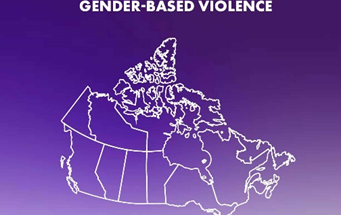With the launch of Canada’s federal elections on Sunday, a question arises: do women have the same chances as men of getting voted into office?
According to research by Canadian political scientists André Blais and Semra Sevi, the answer is yes.
While women remain a minority in the country’s parliament and legislative assemblies, when it comes to voting, Canadians do not penalize female candidates.
On the contrary, certain personality traits traditionally considered “feminine” could even be an advantage in the race for votes.
If women are underrepresented in elected office, that’s not due to voter bias but rather to party recruitment mechanisms and institutional barriers that limit their access to candidacy, the researchers say.
A century of data
Their analysis takes a long view—as far back as a century.
In a study published in 2019 in the Canadian Journal of Political Science, Blais and Sevi (his doctoral student at the time), along with Blais’s colleague Vincent Arel-Bundock, analyzed more than 21,000 candidacies over 29 general elections in Canada since 1921.
They found that while female candidates historically received fewer votes than men, this gap was primarily due to contextual factors.
“Women were running for weaker parties to begin with, which is why they were less frequently elected,” said Blais, an emeritus professor. “When we account for variables such as party affiliation and district competitiveness, the gap between men and women shrinks considerably.”
In fact, historical trends show significant progress: in the 1920s, female candidates received, on average, 2.5 percentage points fewer votes than their male counterparts. Today, this difference has nearly vanished, with the gap now at around 0.5 percentage points, something that’s statistically insignificant.
For Blais, the conclusion is clear: “There is no bias against women in their likelihood of electoral success in Canada, except perhaps for the position of prime minister.”
‘Feminine’ qualities valued more
In a more recent experimental study, published a year ago in Acta Politica, Blais and Sevi (now an assistant professor at the University of Toronto) examined the self-declared personality traits of candidates and their impact on voter preferences.
The study involved 47 groups of 10 American participants who had to decide, hypothetically, whether to run in different types of elections, including a campaign where candidates were required to reveal their most valuable personal trait.
Blais and Sevi classified 29 personality traits: some were deemed “feminine,” such as compassion, loyalty, and patience, and others were categorized as “masculine,” such as reliability, intelligence, and determination.
Surprisingly, the traits most frequently chosen by candidates were honesty, open-mindedness, and compassion—three characteristics that rank high on the femininity scale.
Even more revealing, candidates who exhibited feminine traits received more votes, with a particularly marked advantage for male candidates who emphasized these qualities.
“When we consider only candidate quality, there is no disadvantage linked to feminine traits; in fact, there might even be a slight advantage,” said Blais. “These findings contradict the common belief that feminine qualities are a handicap in politics.”
Recruitment remains problematic
If Canadian voters no longer discriminate against female candidates based on their so-called feminine qualities, why does their underrepresentation persist?
According to Blais, the answer lies in how political parties recruit candidates.
“Women remain underrepresented because, traditionally, men have been more integrated into partisan networks, and incumbents are often men,” he explained.
This observation aligns with findings from other international studies that identify several barriers to women’s political participation, such as the constraints of the electoral districts they run in, the heightened competition in candidate selection, funding challenges, and media obstacles.
“Gender stereotypes remain problematic, creating a double bind: if women exhibit too many feminine traits, they risk being perceived as weak, and if they adopt masculine traits, they may be seen as unlikable,” said Blais.
But the perception of political leadership is evolving, he added. The 2024 study aligns with recent research showing that both male and female candidates are now more willing to highlight typically feminine traits, suggesting a political environment more open to diverse leadership styles.
“Canadian political parties would benefit from recruiting more female candidates for the upcoming elections,” said Blais. “Since they do not suffer from a significant electoral disadvantage, their underrepresentation stems more from institutional barriers than from voter preference for men.”
Provided by University of Montreal





